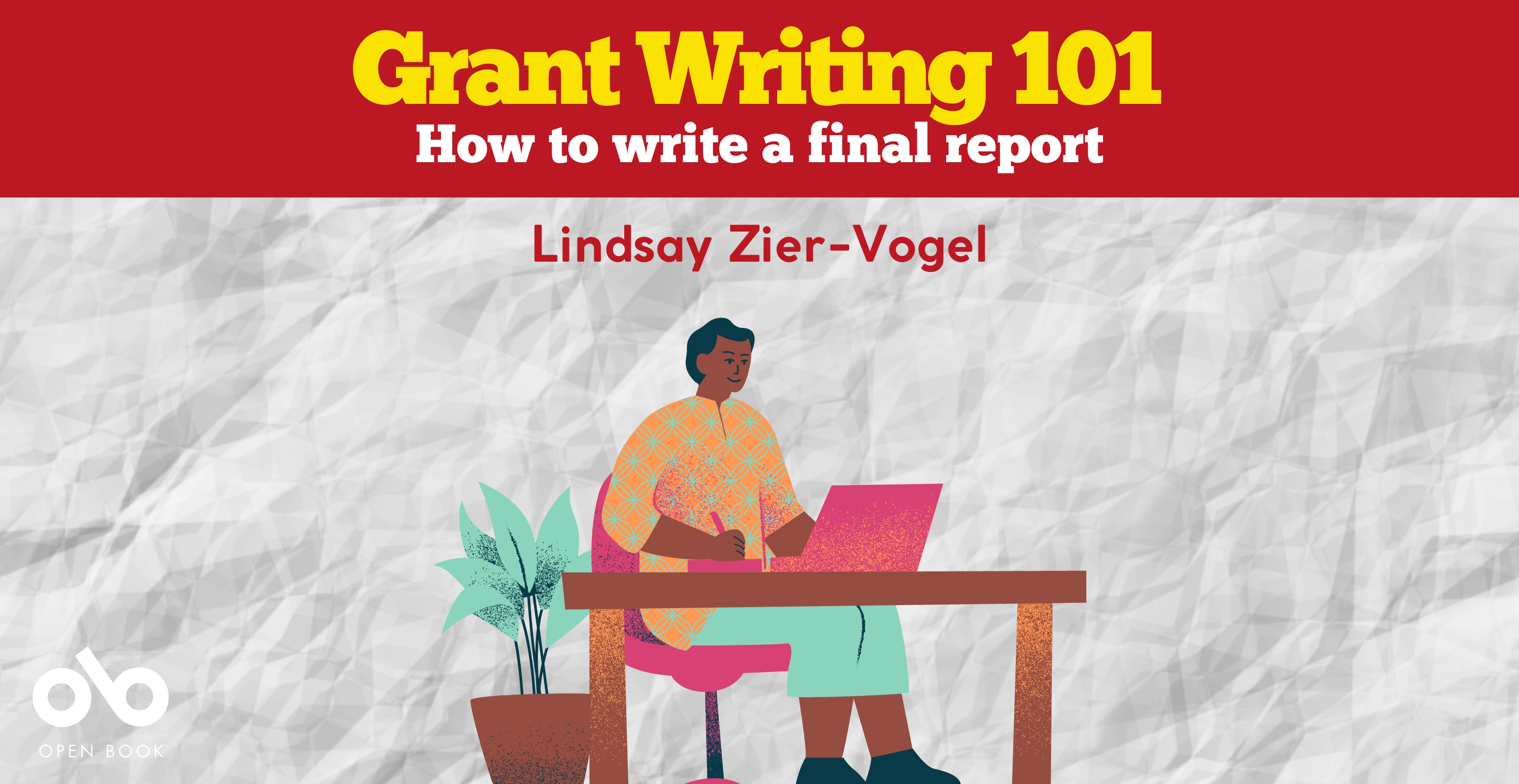Grant Writing 101: How to Write a Final Report
By Lindsay Zier-Vogel
You got a grant, YAY! But now it’s time to write your final report. I’ve heard from so many artists panicking about writing them, but I promise, there’s no need to panic!
Final reports are a way for the granting agency to close the file. It’s a checkbox on their end. Unless your project went completely sideways (and if you have a project that is changing, just send a quick email to your officer and explain what’s going on), most reports, especially for writing grants, are very straight forward – two or three questions that are in the portal, and are about 250 words each, plus an updated budget. Easy peasy!
Answering the questions
The questions usually involve highlighting what you accomplished, and if you experienced any challenges. Instead of reinventing the wheel, take a look at your original proposal and use that as your jumping off point. If nothing’s changed, you can even copy and paste that text—just make sure you change the verb tenses: “I will write a collection of 45 poems” becomes “I wrote a collection of 45 poems”!
Final report budget
For the budget (which, for writers, is only a Canada Council thing), you will use the originally excel file you submitted, and update the “actual” column with your expenses. Arts councils can audit artists, so make sure you’ve got records of any expenses (beyond your personal artist fee).
The biggest thing here is that the budget must “zero out”—the expenses and the revenue need to be the same. This is key!!! The arts councils don’t want to get money back, so make sure it zeros out!
Additional tips:
If you need an extension, just ask!
The arts councils understand that life happens and sometimes you need a bit more time to complete a project. There are forms in the portal to make these requests and they’re rarely (if ever!) denied. Ideally, ask before the report is due/overdue!
If you have an overdue report, DO NOT PANIC!
Just follow the steps above and get ‘er in! Note: You can’t apply for new grants if you have any overdue reports.
You’ve got this!
Your CanLit News
Subscribe to Open Book’s newsletter to get local book events, literary content, writing tips, and more in your inbox
The relief you will feel once you’ve received confirmation on your report submission is worth it!
The views expressed by Open Book columnists are those held by the authors and do not necessarily reflect the views of Open Book.
Lindsay Zier-Vogel is an author, arts educator, grant writer, and the creator of the internationally acclaimed Love Lettering Project. After studying contemporary dance, she received her MA in Creative Writing from the University of Toronto. She is the author of the acclaimed debut novel Letters to Amelia and her work has been published widely in Canada and the UK. Dear Street is Lindsay’s first picture book, and is a 2023 Junior Library Guild pick, a 2023 Canadian Children’s Book Centre book of the year, and has been nominated for a Forest of Reading Blue Spruce Award. Since 2001, she has been teaching creative writing workshops in schools and communities, and as the creator of the Love Lettering Project, Lindsay has asked people all over the world to write love letters to their communities and hide them for strangers to find, spreading place-based love.




